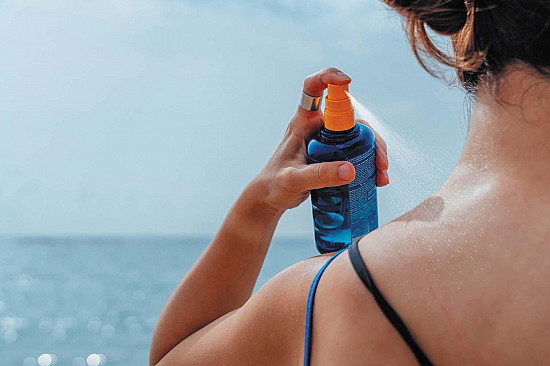8 tips to protect and preserve aging skin
 |
Moisturizer isn't the only solution for more supple skin.
One of the first places we start to notice the years gone by is our skin. Aging skin dries, thins, and loses some of its resilience. The skin care regimen you used in your 20s or 30s won't yield the same results today.
Here are eight effective strategies to help your skin look its best.
1. Shield your skin. Exposure to the sun prematurely ages skin and contributes to fine lines and wrinkles. One of the best skin protection products you can buy is a sunscreen with SPF 30 or above and broad-spectrum UVA/UVB protection. Add another layer of protection by wearing a broad-brimmed hat and sunglasses when you go outside.
2. Keep showers (and baths) short. A quick, five-minute shower will hydrate your skin. Staying in there for more than 10 minutes will start to leach moisture away.
3. Turn down the temperature. Hot water strips your skin of its natural oils. Keep the water temperature comfortably warm, but not scalding hot.
4. Moisturize. As soon as you step out of the bath or shower, apply a layer of moisturizer to your body to seal moisture into your skin. A thicker ointment or cream can be more soothing—and less irritating—to dry, sensitive skin. Look for ingredients like dimethicone, glycerin, mineral oil, or hyaluronic acid, which hold moisture in the skin. Don't forget about your face, either. Use a facial moisturizer designed for your skin type—dry, oily, or combination.
5. Keep it mild. Stick with a gentle cleanser that's free from strong fragrances and alcohol that can dry out skin. Be wary of anti-aging products with ingredients like retinoids and alpha-hydroxy acid, which can increase irritation.
6. Humidify. In cold weather, turn on a humidifier to add moisture to the air of your home.
7. Wear gloves. Your hands can dry out, too, especially in winter. Gloves protect your skin against the harsh weather.
8. Don't smoke. In addition to causing cancer and many other diseases, smoking reduces blood flow and prematurely wrinkles the skin, giving it a leathery appearance.
For more advice on caring for your skin and keeping it healthy, buy Skin Care and Repair, a Special Health Report from Harvard Medical School.
Disclaimer:
As a service to our readers, Harvard Health Publishing provides access to our library of archived content. Please note the date of last review or update on all articles.
No content on this site, regardless of date, should ever be used as a substitute for direct medical advice from your doctor or other qualified clinician.















